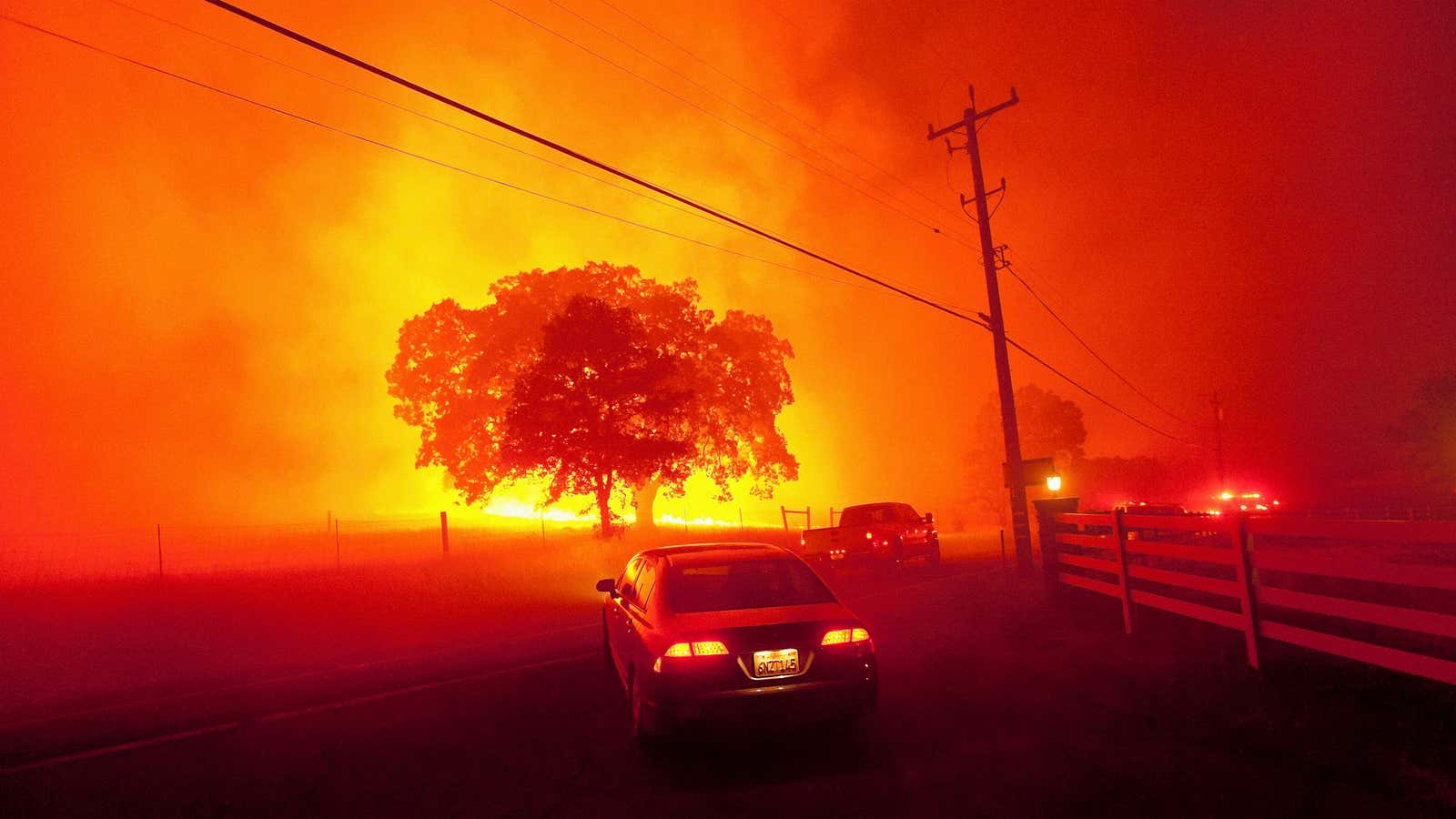In its latest desperate attempt to convince the world to do something about climate change, the UN’s Intergovernmental Panel on Climate Change said to avoid “severe, pervasive and irreversible” consequences, the majority of the world’s electricity should produced by renewable energy by 2050, and the use of fossil fuels must be eliminated by 2100.
The scientific consensus is that keeping global temperatures from rising above 2 °C is the threshold for acceptable levels of global warming. The IPCC outlined various approaches to meet this target—but they all end with the elimination of coal, oil, and gas by the end of the century. It is the fourth report that the IPCC has issued in the past 14 months.
UN secretary-general Ban Ki-moon described the IPCC report as the most comprehensive appraisal of climate change ever taken and added a personal touch to the proceedings based on his eight years at the top of the organization. ”I have seen for myself, those rapidly melting glaciers,” he said.
The IPCC estimates a cost of only 0.06% of global GDP every year to keep temperatures from rising more than 2 °C in 2100, while global GDP in that same period will grow by 300%. In other words, it is affordable to fight climate change.
Next year, a summit of world leaders in Paris will attempt to find some sort of global consensus on dealing with carbon emissions. Past precedent doesn’t bode well.
The UN has been trying to deal with this issue since 1992, when the Earth Summit in Rio agreed a non-binding treaty to reduce greenhouse gases, which resulted in emissions rising. In 1997, the Kyoto treaty bound countries to reduce pollution—but the US never ratified the treaty, and China, India, and others were exempt on account of their relative lack of prosperity. The Copenhagen summit in 2009 was intended to take Kyoto a step further, with more binding targets, but collapsed in acrimony as the US led five nations in blocking a deal. And in 2012 in Doha, everyone agreed that it was time for an agreement—to enter force in 2020.
Will Paris next year be different? This time, the US seems to be on board—at least rhetorically, judging by this statement from White House science advisor John Holdren:
The IPCC’s new Synthesis Report is yet another wake-up call to the global community that we must act together swiftly and aggressively in order to stem climate change and avoid its worst impacts… The new IPCC report underscores the need… [for] continued engagement with other countries on ambitious emissions-reductions targets.
Environmentalist George Marshall argues that all the dithering since 1992 may mean it’s already too late. Instead of containing rising temperatures to 2 °C—which is dangerous enough—the Earth is heading for a rise of 4 °C. The influential climate scientist John Schellnhuber (paywall) tells Marshall that “the difference between two and four degrees is human civilization.” Among the consequences of a 4 °C rise:
- Temperatures the Earth has not experienced in at least 5 million years, leading to heatwaves that the human race may not be able to cope with
- Sea levels rising by 30 feet, submerging two-thirds of the world’s major cities, through the complete melting of the Greenland ice sheet.
- 40% of plant and animals would be at risk of extinction.
- US production of corn, soy beans and cotton would fall by up to 82%.
- The loss of most of the Amazon through fire, as well as a third of Asian rainforests.
And this is not a problem that most of us can leave to our children, even if we wanted to. Marshall warns that we may see that rise of 4 °C in the next 60 years. (None of this is new; the World Bank warned we are on track for “4°C world” in 2012.) And it’s going to get even harder to prioritize anything over growth—the Earth’s population could reach 11 billion by 2100, when the IPCC wants us to be fossil fuel-free.
At least on the surface, the IPCC is hopeful that we will avoid this nightmare scenario through political action. “There is plenty of evidence that countries are acting,” one IPCC member said. “The challenge that remains is that the scale of action is incremental and we need transformational approaches.”




